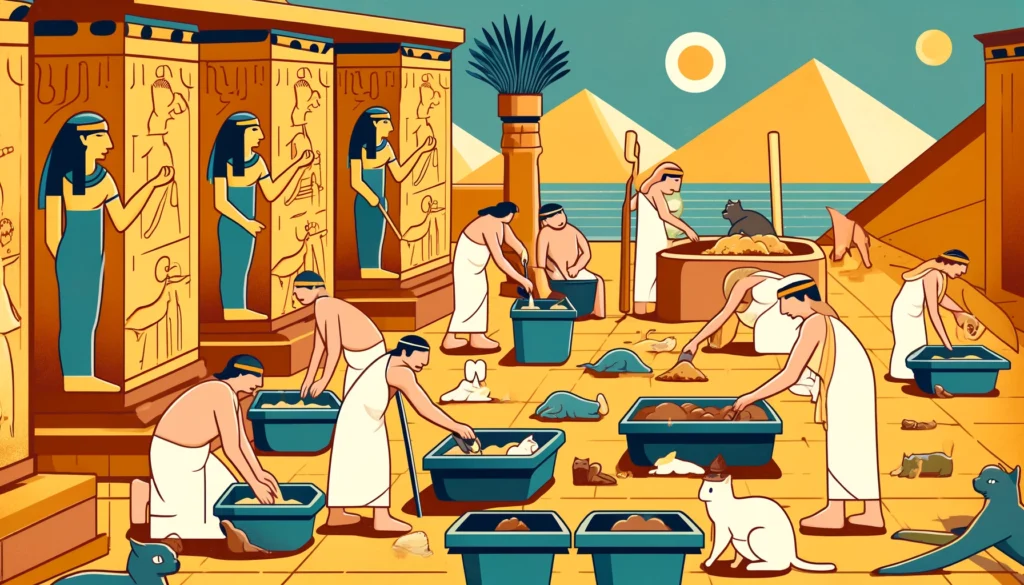In this article, we’ll be breaking down why composting cat litter can be a game-changer for environmentally conscious pet owners. Composting cat litter helps reduce waste and supports a sustainable lifestyle. If you’re curious about turning your pet’s waste into a resource, you’re in the right place. By adopting this simple practice, you can make a significant impact on the environment and improve your garden’s health. Let’s dig into how this method benefits both your home and the planet.
Quick Tips and Tricks:
- Select the Right Litter: Use only natural, biodegradable cat litter for effective composting.
- Maintain Your Compost: Regularly turn your compost to ensure it decomposes properly.
- Safety First: Avoid using composted cat litter in gardens that grow food to prevent health risks.
Key Takeaways
- Environmental Benefits: Composting cat litter reduces landfill waste and lowers the environmental footprint, making it a greener choice for waste management.
- Soil Improvement: Composted litter enriches soil with nutrients, improving soil health and supporting plant growth.
- Practical Tips: Choosing the right type of biodegradable litter and following correct composting methods are crucial for success.
- Safety Measures: It’s important to manage composting practices to avoid health risks, ensuring that the compost is safe for non-edible plants.
- Simple and Effective: Despite initial doubts, composting cat litter is easier than many might think and offers a straightforward way to contribute to sustainability.
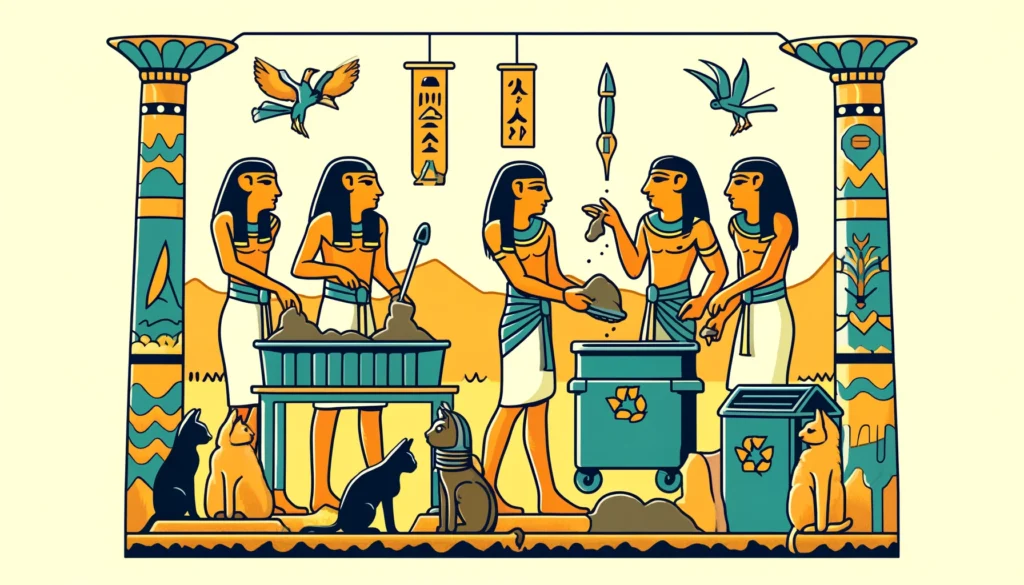
You may also like – Eco-Friendly Cat Litter Disposal: Ditch Plastic Bags
Benefits of Composting Cat Litter
Understanding the environmental and practical benefits of composting cat litter can motivate cat owners to adopt this practice.
Environmental Impact
Composting cat litter significantly reduces landfill waste and lessens environmental footprint.
- Reduces greenhouse gases: By composting, you prevent the release of methane from cat litter in landfills.
- Conserves natural resources: Less waste means reduced demand for landfill space and natural resources.
- Supports waste management: Eases the burden on waste management systems.
- Sustainable pet waste management: Introduces a sustainable method into everyday pet care routines.
Benefits to Soil Health
Composted cat litter can enrich soil with nutrients, aiding in healthier garden growth.
- Improves soil structure: Adds organic matter that enhances soil aeration and drainage.
- Boosts fertility: Slow-release nutrients benefit plant health.
- Encourages biodiversity: Supports microorganisms beneficial to soil ecosystems.
- Biodegradable cat litter: Ensures safe and natural decomposition.
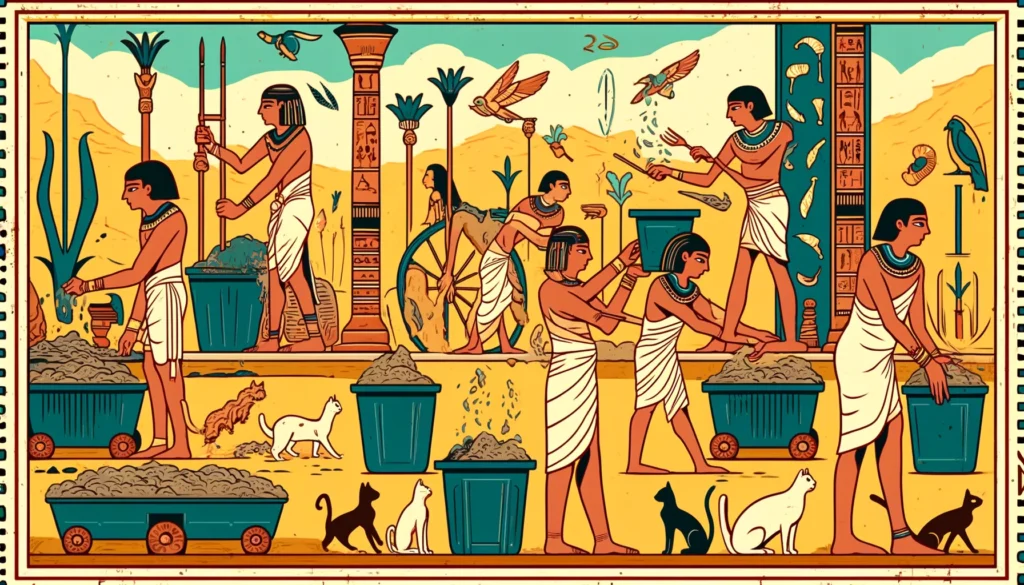
Practical Tips for Composting Cat Litter
Effective composting of cat litter involves understanding the right materials and methods.
Choosing the Right Cat Litter
Opt for natural, organic cat litter options that are safe and effective for composting.
- Biodegradable materials: Ensure the litter is made from plant-based materials like wood, paper, or corn.
- Chemical-free: Avoid litters that contain additives or fragrances, as these can harm your compost’s quality.
- High absorbency: Select litters that absorb well to facilitate easier composting.
- Organic cat waste treatment: This ensures that the compost remains non-toxic and safe for non-edible plants.
Composting Methods
Learn the steps to properly compost cat litter to ensure safety and efficiency.
- Separate compost bin: Use a dedicated bin to avoid contamination of your regular compost.
- Layering technique: Alternate layers of cat litter with organic yard waste to balance the compost.
- Regular turning: Mix the compost regularly to aerate it and speed up the decomposition process.
- Eco-friendly cat litter solutions: Consider covered bins to reduce odors and keep the process hygienic.
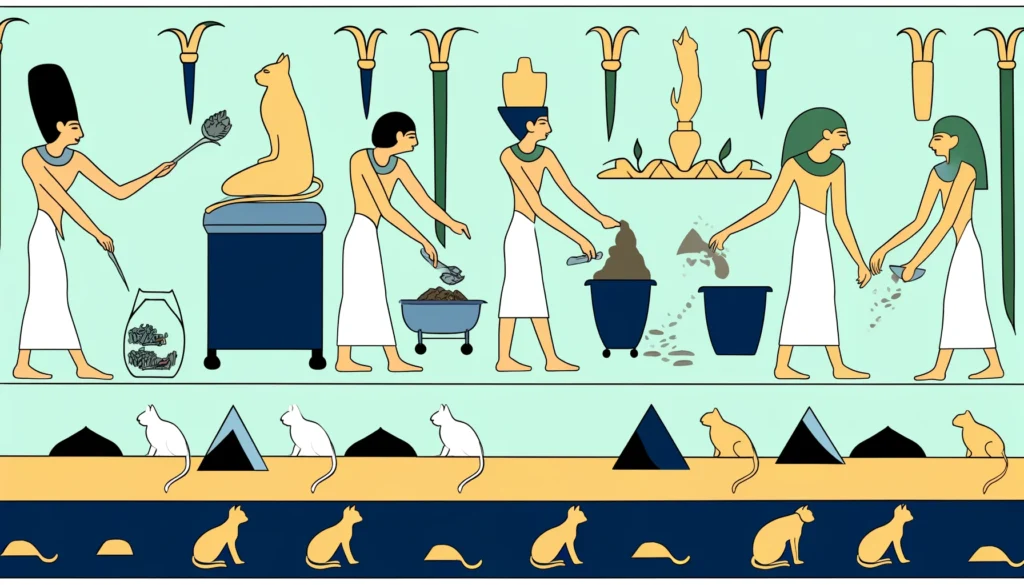
Common Mistakes to Avoid in Cat Litter Composting
Avoiding common pitfalls ensures your composting efforts are safe and beneficial.
Health and Safety Concerns
Ensure that your composting practices do not pose health risks to your family and pets.
- Proper material selection: Avoid using clumping or clay-based cat litters, as they may contain harmful chemicals.
- Disease control: Do not compost cat litter if your cat is sick, as it can contain harmful pathogens.
- Regular monitoring: Keep an eye on your compost’s condition to prevent the growth of mold and bacteria.
- Biodegrading cat litter: Choose biodegradable options that break down safely and naturally.
Ineffective Composting Practices
Identify practices that could render your composting efforts ineffective or harmful.
- Adequate aeration: Turn your compost regularly to ensure it receives enough air, which is crucial for decomposition.
- Correct moisture levels: Maintain the compost’s moisture to keep it neither too wet nor too dry.
- Temperature monitoring: Keep the compost at the right temperature to facilitate the breakdown of materials.
- Waste reduction techniques for cat owners: Implement strategies to minimize waste and enhance the composting process.
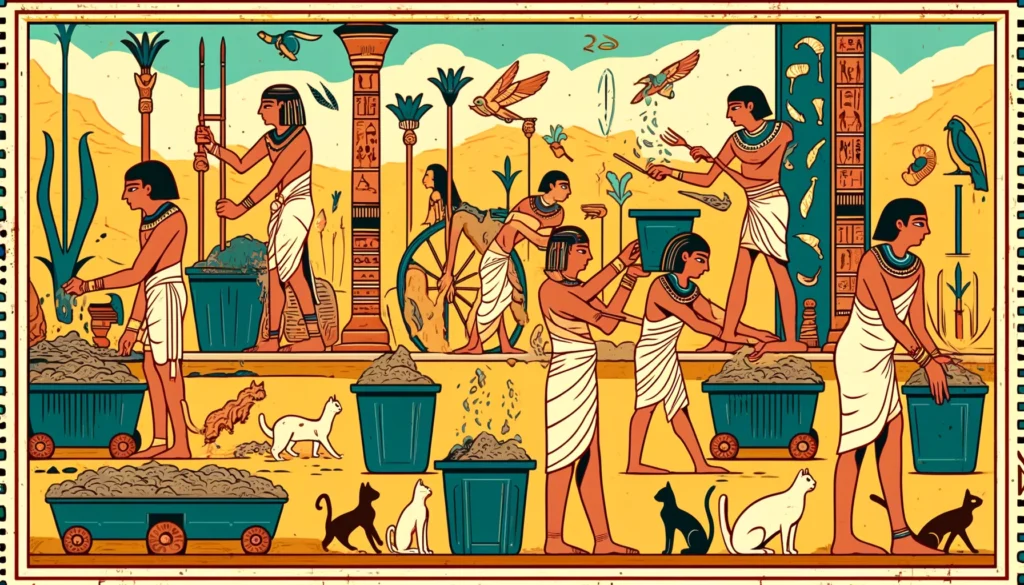
FAQ: Composting Cat Litter
Q: Can cat litter be composted?
A: Yes, cat litter can be composted if it is biodegradable and plant-based, such as wood pellets, paper, wheat, corn, or tofu litters. These materials break down into organic material, unlike clay and crystal litters, which do not decompose.
Q: Is it acceptable to dispose of cat litter outdoors?
A: It is not recommended to dispose of cat litter outdoors due to the risk of spreading Toxoplasma and other pathogens. Always bag it securely and dispose of it with your regular trash to prevent environmental contamination.
Q: How long does it take for cat litter to decompose?
A: Biodegradable cat litters decompose over time, but materials like clay can take thousands of years and do not break down in landfills. Plant-based litters decompose more quickly and are environmentally friendly.
Q: Can you include cat urine in compost?
A: Cat urine should be carefully managed when composting. To reduce the risk of E. coli and other pathogens, remove urine-soaked clumps and feces from the litter before composting to ensure it is safe.
Q: What are the benefits of composting cat litter?
A: Composting cat litter reduces landfill waste and can enrich soil with nutrients, especially when using biodegradable litter. It is a sustainable option for disposing of pet waste effectively.
Q: What should you avoid when composting cat litter?
A: Avoid using non-biodegradable litters such as those made from clay or silica. Also, be cautious of adding cat feces directly to compost used for edible gardens due to the risk of toxoplasmosis and other diseases.
Further Reading
Don’t Throw It Out – How to Compost Natural Cat Litter and Bedding
Is Kitty Litter Compostable? Sustainability Tips for the Cat Lover in Your Life
Wrapping Up: The Advantages of Composting Cat Litter
Adopting composting cat litter practices offers numerous benefits and is simpler than many might think. By turning your cat’s waste into compost, you not only contribute to a healthier planet but also enrich your garden soil, all while managing waste more effectively.
- Eco-friendly: Significantly reduces waste that would otherwise end up in landfills.
- Cost-effective: Lowers garbage disposal costs by decreasing the amount of waste.
- Soil health: Enhances soil quality with nutrients essential for plant growth.
- Simplicity: Easier than expected, with a few adjustments to your daily routine.
Composting cat litter is not just about disposing of waste; it’s a step towards a more sustainable and thoughtful way of living. Why not give it a try and see the difference it makes to your environment and your conscience? By integrating these practices into your life, you’re contributing to a larger movement towards sustainability.


